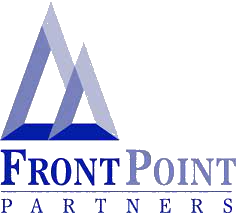Labour laws are those that mediate the relationship between workers, employing entities, trade unions, and the government. Collective labour law relates to the tripartite relationship between employee, employer, and union.

The National Labor Relations Act of 1935, also known as the Wagner Act, is a foundational statute of United States labor law that guarantees the right of private sector employees to organize into trade unions, engage in collective bargaining, and take collective action such as strikes. Central to the act was a ban on company unions. The act was written by Senator Robert F. Wagner, passed by the 74th United States Congress, and signed into law by President Franklin D. Roosevelt.

A sweatshop or sweat factory is a crowded workplace with very poor, socially unacceptable or illegal working conditions. Some illegal working conditions include poor ventilation, little to no breaks, inadequate work space, insufficient lighting, or uncomfortably/dangerously high or low temperatures. The work may be difficult, tiresome, dangerous, climatically challenging or underpaid. Workers in sweatshops may work long hours with unfair wages, regardless of laws mandating overtime pay or a minimum wage; child labor laws may also be violated. Women make up 85 to 90% of sweatshop workers and may be forced by employers to take birth control and routine pregnancy tests to avoid supporting maternity leave or providing health benefits. The Fair Labor Association's "2006 Annual Public Report" inspected factories for FLA compliance in 18 countries including Bangladesh, El Salvador, Colombia, Guatemala, Malaysia, Thailand, Tunisia, Turkey, China, India, Vietnam, Honduras, Indonesia, Brazil, Mexico, and the US. The U.S. Department of Labor's "2015 Findings on the Worst Forms of Child Labor" found that "18 countries did not meet the International Labour Organization's recommendation for an adequate number of inspectors."
Employment is a relationship between two parties regulating the provision of paid labour services. Usually based on a contract, one party, the employer, which might be a corporation, a not-for-profit organization, a co-operative, or any other entity, pays the other, the employee, in return for carrying out assigned work. Employees work in return for wages, which can be paid on the basis of an hourly rate, by piecework or an annual salary, depending on the type of work an employee does, the prevailing conditions of the sector and the bargaining power between the parties. Employees in some sectors may receive gratuities, bonus payments or stock options. In some types of employment, employees may receive benefits in addition to payment. Benefits may include health insurance, housing, disability insurance. Employment is typically governed by employment laws, organisation or legal contracts.
An employment contract or contract of employment is a kind of contract used in labour law to attribute rights and responsibilities between parties to a bargain. The contract is between an "employee" and an "employer". It has arisen out of the old master-servant law, used before the 20th century. Employment contracts relies on the concept of authority, in which the employee agrees to accept the authority of the employer and in exchange, the employer agrees to pay the employee a stated wage.
A code of conduct is a set of rules outlining the norms, rules, and responsibilities or proper practices of an individual party or an organization.

Union busting is a range of activities undertaken to disrupt or prevent the formation of trade unions or their attempts to grow their membership in a workplace.

The Fair Labor Association (FLA) is a non-profit collaborative effort of universities, civil society organizations, and businesses.

The term clawback or claw back refers to any money or benefits that have been given out, but are required to be returned due to special circumstances or events, such as the monies having been received as the result of a financial crime, or where there is a clawback provision in the executive compensation contract.

E-Verify is a United States Department of Homeland Security (DHS) website that allows businesses to determine the eligibility of their employees, both U.S. and foreign citizens, to work in the United States. No federal law mandates use of E-Verify.
In Chile, workers have the right to form and join unions without prior authorization, and approximately 10% of the total work force is unionized.
A portfolio manager (PM) is a professional responsible for making investment decisions and carrying out investment activities on behalf of vested individuals or institutions. Clients invest their money into the PM's investment policy for future growth, such as a retirement fund, endowment fund, or education fund. PMs work with a team of analysts and researchers and are responsible for establishing an investment strategy, selecting appropriate investments, and allocating each investment properly towards an investment fund or asset management vehicle.

Sweatshop-free or sweat free is a term first used by American Apparel, a famous American clothing brand, which means coercion-free, fair-compensation for the garment workers who manufacture their products. The aim of sweatshop-free wish to ensure that all employees are treated fairly and products are made in good working conditions. Sweatshop-free standards include the right to collective bargaining, non-poverty wages, safe workplaces, back wages, and non-harassment. It has been heavily featured in American Apparel’s advertisements and become a common term in the garment industry.
The SA8000 Standard is an auditable certification standard that encourages organizations to develop, maintain, and apply socially acceptable practices in the workplace. It was developed in 1989 by Social Accountability International, formerly the Council on Economic Priorities, by an advisory board consisting of trade unions, NGOs, civil society organizations and companies. The SA8000's criteria were developed from various industry and corporate codes to create a common standard for social welfare compliance. The current (2014) version of the standard is built on earlier 2001, 2004 and 2008 versions.

FrontPoint Partners was a hedge fund that became well known for its bet against subprime mortgages during the 2008 financial crisis under Steve Eisman. It was based in Greenwich, Connecticut, with other offices in New York and London.
Endo refers to a short-term employment practice in the Philippines. It is a form of contractualization which involves companies giving workers temporary employment that lasts them less than six months and then terminating their employment just short of being regularized in order to skirt on the fees which come with regularization. Some examples of such benefits contractual workers do not get as compared to regularized workers are the benefits of having an employer-and-employee SSS, Philhealth, and Pag-ibig housing fund contribution, unpaid leaves, and a 13th-month pay, among others.
Joseph F. “Chip” Skowron III is an American former hedge fund co-portfolio manager of FrontPoint Partners LLC's health care funds. He was convicted of insider trading, for which he served five years in prison. He was also required to repay his hedge fund employer $32 million it had paid him in compensation, because he had been a “faithless servant.”
The faithless servant doctrine is a doctrine under the laws of a number of states in the United States, and most notably New York State law, pursuant to which employees who act unfaithfully towards their employers must forfeit to their employers all compensation received during the period of disloyalty.
The Worker Standards Board, Wage Board or Industry Committee aims to improve wages and working conditions for all workers within a specific industry. When implemented along with other regional labor policies, such as paid family leave, the Worker Standards Board is a useful alternative or supplement to a collective bargaining agreement and a formal labor union, when the situation does not support a union.
The Ethical Trading Initiative (ETI) is a UK-based independent body founded on 9 June 1998, which brings together companies, trade unions and non-governmental organisations (NGOs) to ensure compliance with international labour standards in the global supply chains of member companies. Minimum ethical standards are set out in the ETI Base Code.







